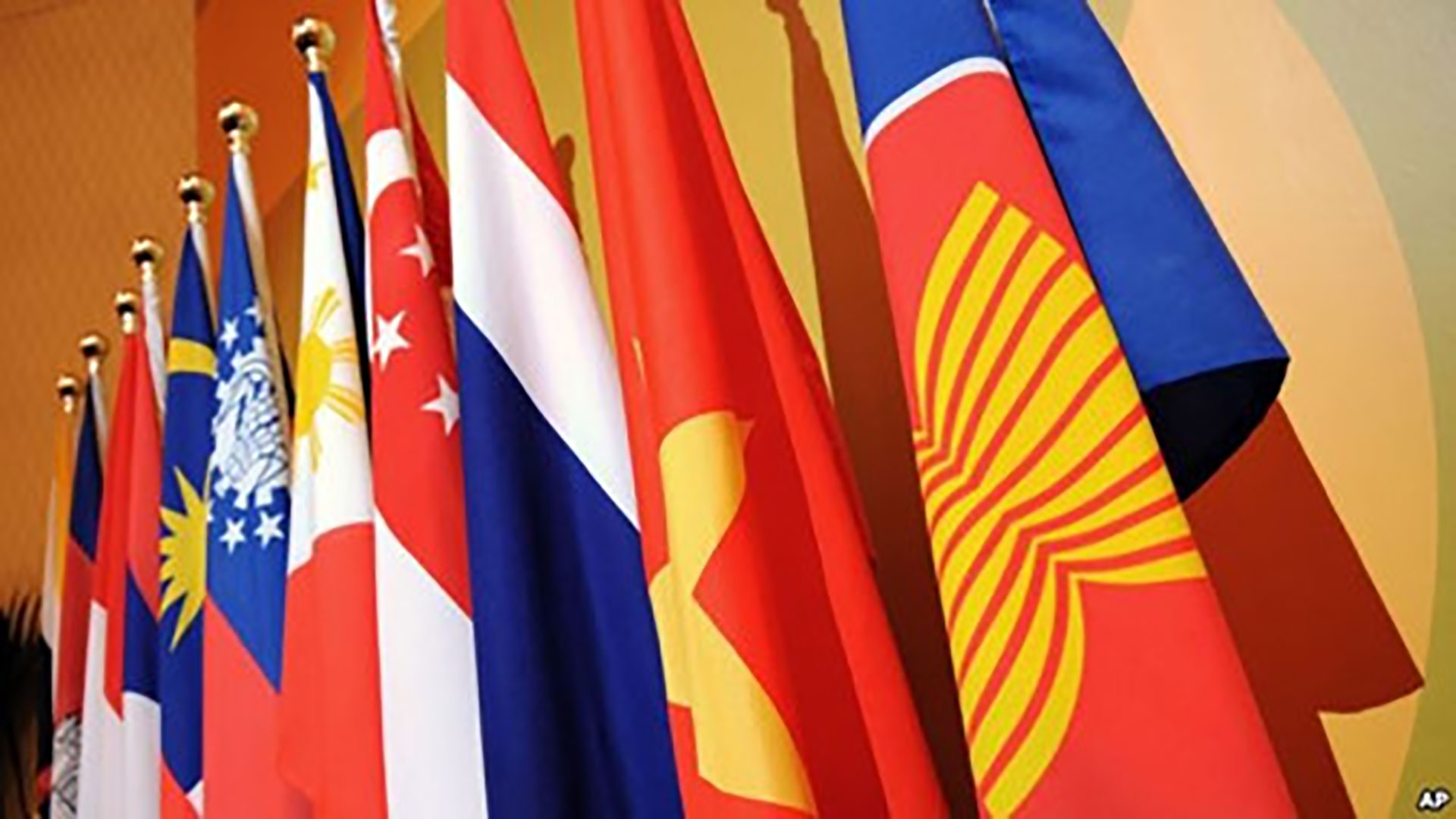Address the missing link in ASEAN integration. Realize People’s Agenda for a Social ASEAN.

Statement of Civil Society, Trade Unions, Migrants, and Parliamentarians in Southeast Asia To the 22nd Senior Officials Meeting of the ASCC and the 17th ASEAN Socio-Cultural Community (ASCC) Council Meeting
On 6-9 March 2017, ASEAN Senior Officials and Ministers will tackle socio-cultural and environmental concerns in the region at the 22nd Senior Officials Meeting of the ASCC and at the 17th ASEAN Socio-Cultural Community (ASCC) Council Meeting. The latter will discuss preparations for and the declarations or statements for adoption by the Heads of States at the ASEAN Summit, with the theme “Partnering for Change, Engaging the World,” in April.
We – civil society organizations, trade unions, workers, migrants, marginalized sectors, and parliamentarians in Southeast Asia – urge high officials and leaders in ASEAN to include in the discussions and declarations the perspectives of ordinary women, men, and vulnerable groups aspiring for a better quality of life – a life of dignity.
We call on the Senior Officials, Ministers, and Heads of States of ASEAN to make the 50th Anniversary of ASEAN truly meaningful by leaving a golden legacy to the peoples in Southeast Asia; make “people-oriented, people-centered ASEAN” a reality. Adopt the people’s agenda for a Social ASEAN.
Majority of the peoples in Southeast Asia have been suffering from economic and social deprivation, insecurity, social exclusion and oppression as inequalities continue to widen. More than 65% of the workforce in the region are in precarious work – without permanent and decent jobs, access to social services and social protection, and without adequate income that could enable them a life with dignity. Less than 30% of the population have social protection as government expenditure for social protection remains low. In Southeast Asia, an average of only 3% of GDP per country goes to social protection and in 4 of the ASEAN countries it is below 2%.
While ASEAN has committed to also forming a socio-cultural community, the social dimension of integration remains sketchy. The economic integration is prioritized, for instance, over any social protection measure or benefit.
Integration efforts are taking place at a time when ASEAN member states are signing a slew of new free trade agreements especially mega-trade pacts like the Regional Comprehensive Economic Partnership (RCEP) between the ten member states of ASEAN and six states with which it has free trade agreements. RCEP would affect almost half of the world’s population.
The needs and rights of the people take a back seat to markets and profits under this regional integration that pursues neoliberal interests affirmed by free trade agreements –tilted towards serving big businesses and transnational corporations, and designed to liberalize our economies including public services and weaken government authority.
People’s rights and demands should stand above markets and profits. Market liberalization, deregulation and privatization have only led to the loss of traditional livelihoods and means of survival, and further exploitation of workers. They have also led to diminished public access to essential services and social security.
With the above conditions, the need to incorporate a social dimension in ASEAN’s integration process is urgent. It is imperative to integrate a social dimension that guarantees people’s needs and rights promoted, protected, and fulfilled in the regional integration process. We propose the notion of a Social ASEAN – where sustainable jobs, worker’s rights, universal healthcare, education, water, energy, social security and affordable housing are integral components of the integration effort. This will create opportunities for all.
Adopt the agenda for a sustainable Social ASEAN that reflects the aspirations and demands of the peoples in ASEAN. To achieve a sustainable Social ASEAN, the following structural issues be addressed and factored into the decision-making processes of ASEAN governments and non-state actors. This would require existing ASEAN Declarations with a social dimension be made binding on governments and the notion of non-interference set aside in the interests of the people.
-
Democratic and participatory processes at national and regional levels;
-
Gender equality and protection of vulnerable and disadvantaged groups (children and young people, older persons, persons with disability, LGBTIQ persons, migrant workers and their families);
-
State duty to provide essential services, especially universal healthcare and lifelong learning opportunities for all;
-
Social protection for all (universal living pension as well as health, education, housing, water, electricity, land, employment);
-
Safe and affordable food and access to productive resources; and
-
Ratification and implementation of ILO core labor standards.
Governments must be more inclusive, accountable, and willing to work in partnership with all their citizens towards social justice, sustainable development, and a life of dignity.
Signed,
Working Group on Social ASEAN
-
ASEAN Parliamentarians for Human Rights (APHR)
-
ASEAN Services Employees Trade Union Council (ASETUC)
-
Migrant Forum Asia (MFA)
-
Network for Transformative Social Protection (NTSP) – Asia/Southeast Asia
-
Malaysian Trade Union Congress (MTUC)
-
Monitoring Sustainability of Globalisation (MSN) - Malaysia
-
Trade Union Rights Centre (TURC)
National organizations/formations in Southeast Asia
-
Buhay na may Dignidad para sa Lahat (DIGNIDAD) Alliance - Philippines
-
WomanHealth Philippines
-
Kampanya para sa Makataong Pamumuhay (KAMP) - Philippines
-
Aksyon sa Kahandaan sa Kalamidad -National Coalition - Philippines
-
Alyansa Agrikultura, Centro Saka, Inc. – Philippines
-
Development Action for Women Network (DAWN) – Philippines
-
Empower - Philippines
-
Federation of Free Workers (FFW) - Philippines
-
Integrated Rural Development Foundation (IRDF)
-
Keep Hope Alive - Philippines
-
Labor Education and Research Network (LEARN) - Philippines
-
LILAK (Purple Action for Indigenous Women's Rights) – Philippines
-
Manggagawang Kababaihang Mithi ay Paglaya (MAKALAYA) – Philippines
-
National Movement for Food Sovereignty (NMFS) - Philippines
-
National Union of Building and Construction Workers (NUBCW) - Philippines
-
Partnership for Clean Air (PCA) Inc. - Philippines
-
Philippine Alliance of Human Rights Advocates (PAHRA) – Philippines
-
Philippines for Natural Farming, Inc. (PNFI)
-
Philippine Migrants Rights Watch (PMRW)
-
Philippine Rural Reconstruction Movement (PRRM)
-
Public Services Labor Independent Confederation (PSLINK)- PSI - Philippines
-
Reporma Isusulong ng Survivors Kalamidad -Laguna Lakes - Philippines
-
Save Sierra Madre Network Alliance Inc. - Philippines
-
Sustainability and Participation through Education and Lifelong Learning (SPELL) - Philippines
-
Women's Legal and Human Rights Bureau, Inc. (WLB) – Philippines
-
World Council for Curriculum and Instruction (WCCI) – Philippines
-
ZAMBAL KA – Philippines
-
Cambodian Grassroots Cross-Sector Network (CGCN)
-
CamASEAN Youth's Future (CamASEAN) – Cambodia
-
Cambodian Independent Civil-Servant Association (CICA)
-
Independent Farmers Association for Community Development (IFACD) - Cambodia
-
Farmers for Farmers Network (FFF) - Cambodia
-
Rainbow Community Kampuchea (RoCK) – Cambodia
-
Social Action for Change (SAC) – Cambodia
-
Aspek - Indonesia
-
FSPMI (Federation of Metal Workers)- Indonesia
-
Indonesia for Global Justice (IGJ)
-
INISIATIF - Indonesia
-
INKRISPENA – Indonesia
-
Jamkes Watch (Social Security Healtcare & Workers)- Indonesia
-
Institut Pemberdayaan Perempuan-Institute for Women Empowerment (IWE) - Indonesia
-
Konfederasi Pergerakan Rakyat Indonesia (KPRI) - Indonesia
-
Konfederasi Serikat Nasional/National Union Confederation ( KSN) - Indonesia
-
Lembaga Informasi Perburuhan Sedane/Sedane Labour Resource Center (LIPS) – Indonesia
-
Lembaga Studi dan Advokasi Masyarakat/Institute for Policy Research and Advocacy (ELSAM) -
-
Forum Islam Progresif/Progressive Islam Forum - Indonesia
-
Local Initiative for OSH Network (LION ) - Indonesia
-
Migrant Care – Indonesia
-
Sarekat Hijau Indonesia/Indonesian Green Union (SHI) - Indonesia
-
Serikat Mahasiswa Progresif Universitas Indonesia/Progressive Student Union (SEMAR UI) –Indonesia
-
Serikat Pekerja Percetakan Penerbitan dan Media Informasi Serikat Pekerja Seluruh Indonesia (SP PPMI SPS) – Indonesia
-
Solidaritas Perempuan (Women’s Solidarity for Human Rights) – Indonesia
-
SPN (Nasional Trade Union) -Indonesia
-
Working Peoples Party (PRP) - Indonesia
-
Yayasan Lembaga Bantuan Hukum Indonesia/ Indonesian Legal Aid Foundation (YLBHI) – Indonesia
-
National Union of Bank Employees (NUBE) - Malaysia
-
TENAGANITA – Malaysia
-
Phan Tee Eain (Creative Home) - Myanmar
-
Yangon Watch – Myanmar
-
Think Centre - Singapore
-
HomeNet Thailand
-
Vietnam Peace & Development Foundation
Regional and other National Organizations in Asia
-
ASEAN Disability Forum (ADF)
-
ASEAN Youth Forum (AYF)
-
ASEAN SOGIE Caucus
-
ALTSEAN-Burma
-
HomeNet Southeast Asia
-
Asian Roundtable on Social Protection
-
Asia Network on the Right to Social Protection (ANRSP)
-
Asia Monitor Resource Centre
-
Asia Pacific Network for Food Sovereignty (NMFS)
-
Building and Wood Workers International - Asia Pacific Region (BWI-AP)
-
Disabled Peoples’ International Asia Pacific (DPIAP)
-
Focus on the Global South
-
HelpAge International
-
NGO Forum on ADB
-
Bangladesh Krishok Foundation
-
Centre for Environmental Justice/Friends of the Earth - Sri Lanka
-
Christian Development Alternative (CDA) - Bangladesh
-
Indian Social Action Forum (INSAF)
-
Mrinal Gore Interactive Centre - India
-
Pakistan Fisherfolk Forum
-
Pakistan Kissan Rabita Committee
-
Programme on Women's Economic, Social and Cultural Rights (PWESCR) - India
Individuals and other International networks
-
Achin Vanaik, retired professor of "International Relations and global Politics," University of Delhi
-
Anuradha Chenoy, professor at Jawaharlal Nehru University – India
-
Birgit Daiber, Common Good Network
-
Cora Fabros, Co-Vice President of International Peace Bureau
-
Girlie E. Amarillo, DSD, Alay kay Inay Foundation, Inc.
-
Francois Houtart, professor-National Institute of Higher Studies of Quito (Ecuador)
-
Kamal Mitra Chenoy, professor at Jawaharlal Nehru University – India
-
Samir Amin, Chair – World Social Forum
-
William Nicholas Gomes, Human Rights Defender and Freelance Journalist - UK
-
Europe solidaire sans frontières (ESSF)
-
Global Social Justice
-
Institute for Globalization studies and social movements (IGSO) - Moscow
-
World Social Forum
